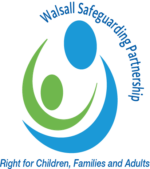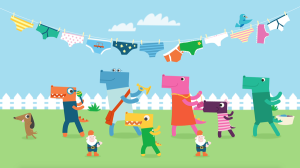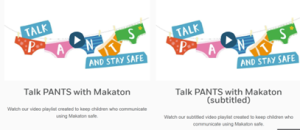Child Sexual Abuse
What is a child or young person?
In England, a child or young person is defined as anyone who has not yet reached their 18th birthday.
Child Sexual Abuse
When a child or young person is being or as been sexually abused, they are pressurised, forced, tricked, or intimidated into sexual behaviours with an adult or another young person.
Sexual abuse can include kissing, touching, or feeling genitals (private parts) or breasts under or over clothing, sex (intercourse) including vaginal, anal, and oral sex, looking, or taking part in the making of sexual images (child abuse imagery) being shown pornography or people doing sexual activities with themselves / others, or being pressured not to use contraception.
Sexual abuse can be over a period of time but can also happen once.
Sexual abuse can happen to anyone – boys and girls and to anyone of any sexual orientation.
the adult or young person abusing a child or young person could be male or female. They could be someone known to them such as a family member, a friend, or someone they don’t know. Sexual abuse can also sometimes happen in romantic relationships between you and your boyfriend or girlfriend.
Sexual abuse can happen anywhere – and it can happen in person or online.
It is never a child or young person’s fault they have been sexually abused.
If you are being sexually abused it’s not your fault and you’re not alone – tell someone.
Body Safety
- some of your body parts are ‘Private’.
- your private parts are called private because they are not for everyone to see.
- no one should touch your private parts and that no one should ask you to touch their private parts.
- no one else should touch your private parts. Not friends, not aunts or uncles, not teachers or coaches. Even if you like them or think they are in charge, they should still not touch your private parts.
- A parent or doctor might touch your private parts when they are helping to clean or if you need some cream and have a poorly private part.
- no one should take pictures of your private parts.
- Other body touches might be tickles, hugs, or kisses but you don’t have do something you do not want to do. it is OK to say “no”.
- no matter what anyone tells you, body touches or body secrets are not okay, and you should always tell a trusted adult if someone tries to make you keep a body secret.
- its ok to tell an adult or another young person ‘no’ and to leave if they want to see or touch your parts.
- You will never be in trouble if you tell your trusted adult about a body secret or that someone as asked to see or look at your private parts
The law
There are laws to protect children from sexual abuse. Child sexual abuse is a crime.
When someone over 16 is having sex with someone under 16, they are breaking the law.
When someone in a position of trust or power over the other person is having sex with someone, they may be breaking the law.
Consent
The age of consent, or the legal age to have sex in the UK, is 16. This is the same no matter what your sexuality or gender is.
Any sort of sexual contact without consent is illegal, regardless of the age of those involved.
Children under 13 cannot legally consent to any sexual activity.
You can find more out about the law and consent by visiting Childline
https://www.childline.org.uk/info-advice/friends-relationships-sex/sex-relationships/sex-consent/
Advice
Sometimes people seem nice at first and then they turn out to be mean. We know this, you can talk to about it and won’t be punish if you do. There is usually a lot of confusion and secrecy surrounding child sexual abuse, and often children will feel unable to tell anyone about the abuse when it is happening.
Below are some resources to help you understand more about your body and child sexual abuse.
Talk PANTS
With the help of a friendly dinosaur called Pantosaurus, Talk PANTS is here to help you understand that you have a right to say no and if you need to speak out about something, someone will listen.
Click the image below to visit the NSPCC’s website to find out more information on their ‘Talk PANTS’ campaign.
Click on the image below to watch the PANTS rules Recorded with British Sign Language and subtitles
Click on the image below to watch the PANTS rules using Makaton
PANTS guides and resources | NSPCC
Disrespect Nobody
There’s a person attached to everybody, respect both. Healthy relationships are all about respecting each other. You should feel loved, safe, and free to be yourself.
Relationships can be confusing, and it can be difficult to understand what is and isn’t normal behaviour.
Click on the image below to watch the Disrespect Nobody
Rape is sex without consent. This means that rape isn’t just people being physically forced into a sexual act, it also includes pressure that makes someone feel like they had no choice but to have sex.
Most rape victims know their attacker, sometimes it is even the person they’re in a relationship with.
If you recognise any of the signs of abuse in your own relationship, you can get help.
Harmful Sexual Behaviours
Harmful sexual behaviour (HSB) is developmentally inappropriate sexual behaviour displayed by children and young people which is harmful or abusive.
Peer-on-peer sexual abuse is a form of HSB where sexual abuse takes place between children of a similar age or stage of development. Child-on-child sexual abuse is a form of HSB that takes place between children of any age or stage of development.
Problematic sexual behaviour (PSB) is developmentally inappropriate or socially unexpected sexualised behaviour which doesn’t have an overt element of victimisation or abuse.
GET HELP
If are being sexually abused or you find out your friend or family member has been sexually abused, you might not know what to do next.
If you have or are being sexually abused, you might not understand that what’s happening is abuse or that it’s wrong for the abuser to do this to you (or another child). We understand that you might be afraid to tell someone or have some confusing thoughts about it. We want you to know that what’s happening to you is not ok and we’re here to support you.
We want to reassurance that you are doing the right thing by telling a trusted adult about the sexual abuse.
A trusted adult is a safe person who can listen to you without judgement and support you and help stop the abuse from happening again. A trusted adult can include someone in your family, a teacher or pastoral support worker at your school, a youth worker at your youth club, a person at your places of worship, or your social worker.
To report sexual abuse, you can
- Tell your trusted adult.
- Contact Walsall children’s social care team on: 0300 555 2866
- Contact the police by calling 999. For non-emergency support, you can visit your local police station in person, visit your local force website, or call 101. You can find your local police force website here: police.uk/pu/contact-the-police/uk-police-forces
- Contact the NSPCC helpline on 0808 800 5000. They have dedicated child protection specialists will be able to advise and take any necessary action.
- Contact Childline – you can contact Childline at any time day or night to speak to someone about their concerns. childline.org.uk
- Report to CEOP – CEOP is a law enforcement agency and is here to help keep children and young people safe from sexual abuse and grooming online
Any information given will be acted upon.
Further Support
 www.childline.org.uk/info-advice/bullying-abuse-safety/abuse-safety/sexual-abuse/
www.childline.org.uk/info-advice/bullying-abuse-safety/abuse-safety/sexual-abuse/
Lots of young people who’ve experienced sexual abuse can feel confused or unsure about what’s happened. But even if you’re not sure, you can still get support.
You can talk to Childline about anything that might be happened. You can tell our counsellors as much or as little as you want, they can help you to understand what’s happened and get support if you’re ready.
If someone has asked you to do things online that you don’t feel comfortable with, Thinkuknow offers advice to young people on sex, relationships and staying safe online. It may be talking about sex, asking you to send nude photos of yourself, or pressuring you to meet in real life, you can report this using their online Child Exploitation and Online Protection (CEOP) ‘Report it’ button. They’ll ask for information about you and what’s happened, which will help them to understand more about the situation and keep you safe. You can also report to CEOP if you are worried about a friend, or someone you know.
Barnardo’s supports children and young people who have experienced sexual abuse, to make them safe and help them recover.







